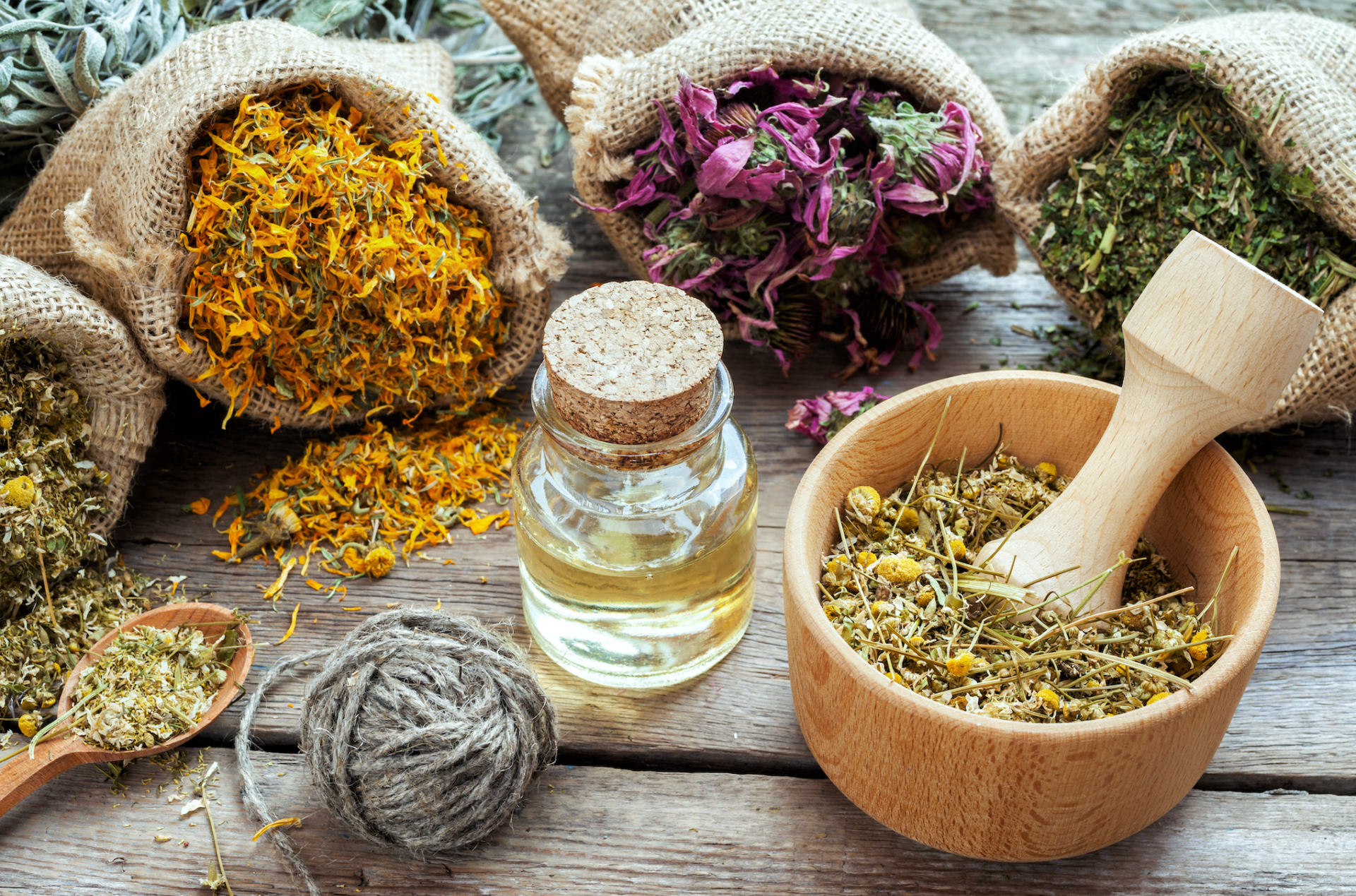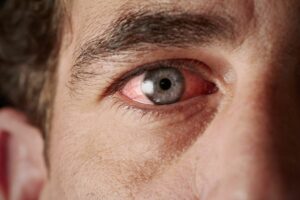Everything old is new again
In a time when science and medicine are making such remarkable advances, it can seem counterintuitive that so many people are drawn to plant medicine. There are many reasons for this. Some are attracted by the idea of living a plant-based life and are drawn to the opportunity to use whole and organic plants. Others find appeal in side-stepping a medical system that is overwhelming, expensive, prescriptive, and not always effective. Others find centuries of successful practices all the evidence they need–but it’s not all the evidence there is.
The western medical and psychiatric community is discovering what indigenous people have known for generations: plant medicine is powerful medicine. Studies confirm that plants can provide powerful therapy for cancer patients facing end-of-life issues, people struggling to access and process repressed memories, those with severe PTSD and even relatively healthy people who just want to increase their ability to focus during the work day.
If this sounds too left-of-center and you’re thinking that you’d prefer the latest pharmaceuticals over ancient plant medicines, remember: many of our most trusted conventional medications come from plants.
What is Plant Medicine
Many medicines are made from plants. Valium is from the valerian root. Aspirin is from willow bark. Morphine, opium, and codeine are from poppies. You could be forgiven for thinking that almost all medicine is in some way plant medicine, but the term “plant medicine” is used to refer to plants that have medicinal properties in their natural form. There are lots of them!
The world of plant medicine includes everything from familiar kitchen plants like ginseng, shiitake, and turmeric to psychoactive plants like cannabis, psilocybin mushrooms, and the mixture of caapi (Banisteriopsis Caapi) and chacruna (Psychotria Viridis) used to brew ayahuasca. While the effects they give can be very different they have one thing in common: they offer opportunities for physical, psychological, and even spiritual healing.
Cannabis
After common kitchen plants, cannabis is likely the plant medicine with which you are most familiar. It has pride of place in American popular culture and is legal and readily available in many states. It may be best known as a recreational psychoactive that gives people a feeling of euphoria, an altered state of mind, a distorted sense of time, and a case of the munchies. This is true, but it’s far from the whole truth.
In recent decades medical cannabis has come to full flower as a measurably effective and highly versatile therapeutic drug. Medical cannabis is the same plant as recreational cannabis and is consumed in all the expected ways.
People diagnosed with Alzheimer’s Disease, Amyotrophic lateral sclerosis (ALS), Multiple Sclerosis, Epilepsy, Crohn’s Disease, Glaucoma, Cancer and HIV/AIDS have had significant improvements in their symptoms and side effects after using medical cannabis.There is also a growing body of study supporting the idea that medical cannabis can be useful in treating a range of psychological disorders including ADHD, PTSD, social anxiety and depression.
This is great news if faced with big challenges, but it’s great news when faced with smaller challenges too. Brands like 1906 offer “finely tuned combinations of select cannabis strains, with potent plant medicines” to create “highly functional formulas that help you do all the life stuff better.”
Psilocybin Mushrooms
Psilocybin, commonly known as magic mushrooms or ‘shrooms, contain a psychoactive substance that causes changes in perception, emotional shifts, visual distortions (halos, patterns, tracers), and an amplified sense of wonder and delight.
Like cannabis, psilocybin mushrooms are recognized throughout popular culture as a popular recreational and medicinal drug. As with cannabis, recent studies and indigenous wisdom tell us this is only the beginning of the benefits.
There is a growing body of evidence that psilocybin is useful in treating psychiatric conditions like obsessive-compulsive disorder, addiction, and depression, including end-of-life psychological issues. “The general idea;" explains Dr. Matthew Johnson, Associate Professor of Psychiatry and Behavioral Sciences at Johns Hopkins University School of Medicine, “is that the nature of these disorders is a narrowed mental and behavioral repertoire. So, [psilocybin] in well-orchestrated sessions [has] the ability to essentially shake someone out of their routine to give a glimpse of a larger picture and create a mental plasticity with which people can step outside of those problems” While the psilocybin experience lasts only a few hours, the benefits appear to be extraordinarily long-lasting.
A 2020 study followed patients who were given two doses of psilocybin within a two-week period. 67% of the participants exhibited a more than 50% reduction in depression after only one week. At the four-week mark, 71% of the patients exhibited a reduction in depression. 54% of those patients experienced such improvement that they were no longer diagnosed as depressed. “The magnitude of the effect we saw was about four times larger than what clinical trials have shown for traditional antidepressants on the market,” says Alan Davis, PhD.
Cancer patients benefit from psilocybin, too. “There’ve been some promising preliminary results in the treatment of overwhelming existential anxiety in people who are facing the end of life, who have diagnoses of advanced-stage cancer,” says Dr. Charles Grob, in a Healthline interview. Even a single dose can have a dramatic and lasting positive effect that can ease the load for patients, and those who love them, during of life’s most difficult journeys..
You don’t have to have lots of stress, or even lots of psilocybin, to benefit from this plant medicine. Many healthy adults microdose psilocybin in order to enhance their general sense of wellness. Taking a dose as small as 0.2-0.5 mg is not enough to cause an altered state of consciousness. (An experience like this would require a dose of 1-2.5 grams.) In fact, the psychoactive effects of the drug are barely, and often not at all, perceptible.
Microdosers are more likely to notice an increased sense of happiness, creativity, focus, self-efficacy, motivation, social benefits and a lessening in feelings of anxiety and depression.
While research is still in the early stages, current findings are encouraging and there is no evidence of negative side effects. Psilocybin is known to be safe for the body and not addictive. Because tolerance to psilocybin builds quickly, thus diminishing the effects experienced by the user, it is not likely to become habit-forming for pleasure, either. They’re safe for the planet too.It takes little land, water or energy to grow mushrooms. When benefits so outweigh the costs, it’s a trip worth taking.
Ayahuasca
Ayahuasca is a thick, sludgy and bitter tea made from caapi vine (Banisteriopsis Caapi) and chacruna leaf (Psychotria Viridis). The plants, and the tea, are native to the Amazon where they were used by shamans in group ceremonies focused on social cohesion and intimate ceremonies for healing, divination and shamanic journeying. Many still seek out ayahuasca ceremonies for personal and spiritual exploration.
Responses to ayahuasca are dramatic to the point of life-altering and include a host of physical and psychological effects. Physical effects include vomiting, hallucination, tingling, change in perception of body temperature, skin sensitivity, sensitivity to sound and touch. The psychological effects are more significant and the major area of interest when it comes to ayahuasca. They include improved personal insight, recovery of repressed memories and intensified memories of recent events as well as an intense feeling of connectedness and enhanced sense of compassion.
Anecdotally, to many people who have consumed the substance, it seems particularly useful in the treatment of PTSD. One use of ayahuasca has been described as having 10 years of therapy packed in a single night and science would seem to support this.
The church of the Uniao do Vegetal (Union of the plant) drinks this tea in an act of communion. The congregations, which include many people who have experienced addiction, domestic violence, PTSD and other types of trauma, say that they have found lasting improvement as a result of both the community and the tea.
Community is central to having a healthy ayahuasca experience according to experts. Whether you take the tea with a group or in the company of an experienced guide, it is important that you do not do it alone. The reasons for this are both traditional and practical. It is useful to have a trustworthy spiritual, psychological and physical protector when you are in such a vulnerable state.
Recent studies show that ayahuasca has rapid antidepressant effects , and that long-term use may help reduce serotonin deficiencies which are suspected to be at the heart of alcoholism, depression, autism, schizophrenia, attention deficit hyperactivity disorder, and senile dementia
If you are interested in trying ayahuasca, you will need to do research. It is currently illegal in the United States, except where allowed for religious purposes. The best way is to find a reputable guide or retreat. You may find leads, reviews, and videosonline.
Adaptogens
If ayahuasca is too wild, start with something more mild: adaptogens! These herbs, roots, fungi and leaves are non-psychoactive plant medicines that can help the body resist stress of all kinds. Examples include Tulsi Basil which can reduce stress, anxiety and inflammation, Reishi Mushrooms which can improve sleep and reduce stress, Turmeric which has anti-inflammatory properties, and Licorice which amps up energy and endurance.
Adaptogens have been used therapeutically for centuries and recognized by this name since the 1950s, but exciting things happen as a new generation explores plant medicine and finds new ways to incorporate them into a modern lifestyle.
MUDWTR for instance, offers a coffee substitute “consisting of organic ingredients lauded by cultures old and young…with 1/7th the caffeine of coffee and a blend of adaptogenic mushrooms the drink promises to give you “natural energy, focus and more without the jitters and crash.”
Similarly, boutique beauty and wellness brand, Moon Juice offers adaptogenic supplements like SuperYou “a clinical strength blend of four potent adaptogenic herbs that help regulate cortisol to reduce the effects of stress.” They also offer a range of Moon Dusts which they describe as “alchemical blends of adaptogens, superherbs, supermushrooms and minerals designed to enhance your being throughout the day.
Functional Medicine
If the idea of plant medicine appeals but you’re not sure where to start, partnering with a Functional Medicine practitioner may open some doors. According to Dr. Robin Berzin, founder and CEO of Parsley Health, functional medicine, which utilizes both conventional and alternative forms of medicine, looks “at the body as an intelligent organism that can heal itself given the right support.
“ This means optimizing food, identifying simple ways to change your lifestyle and using proven, plant-based supplements that can help you feel better now and prevent disease down the road.” While a practitioner of Functional Medicine may be more likely to prescribe plant-based supplements and adaptogens, their open-minded approach and dedication to patient-practitioner partnership may leave them more open to treatment options like cannabis, psilocybin and even ayahuasca.
Whether or not they are receptive it’s important to remember that you know your body and mind best and that you are your own most powerful advocate. If your own instinct, curiosity and research lead you to believe that plant medicine holds an answer for you, explore your options. Both ancient wisdom and modern science share your belief in the powerful potential of plant medicine.






